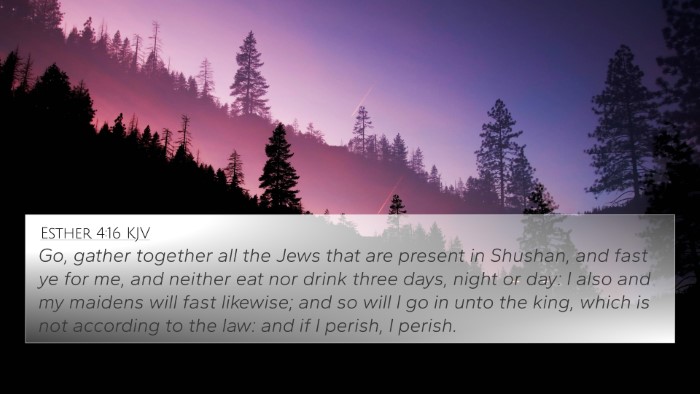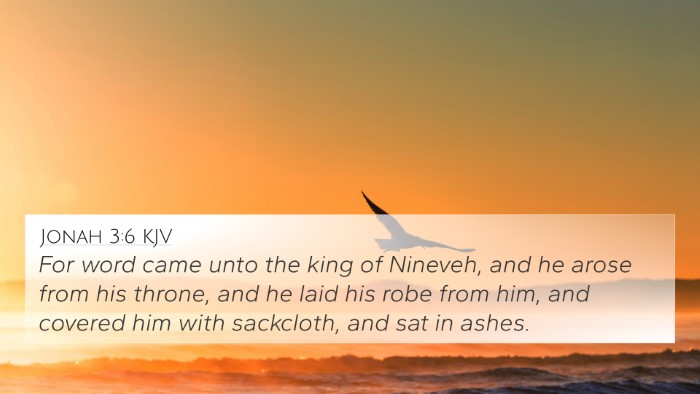Understanding Acts 9:9
Verse: Acts 9:9 - "And he was three days without sight, and neither did eat nor drink."
This verse marks a significant moment in the conversion of Saul of Tarsus, later known as the Apostle Paul. It follows his dramatic encounter with Jesus on the road to Damascus, where he was blinded. The three days of fasting and blindness serve multifaceted purposes in narrating Saul's transformation and preparation for his future ministry. Below is a summarized interpretation derived from public domain commentaries, including insights from Matthew Henry, Albert Barnes, and Adam Clarke.
Meaning of Acts 9:9
- Physical Blindness: Saul's physical blindness is a direct consequence of his encounter with the divine. It signifies the spiritual blindness that he had prior to this moment. Matthew Henry notes that this physical blindness is representative of Saul's previous state of ignorance about the truth of Jesus Christ.
- Three Days of Fasting: The period of three days without eating or drinking demonstrates both Saul's distress and his deep introspection. Albert Barnes highlights that this time allowed for reflection on his past actions and prepared his heart for receiving divine guidance.
- Spiritual Preparation: Adam Clarke indicates that the blindness and fasting were necessary preparations for the important role Saul would soon take on as a missionary. This experience may have been meant to humble him and cultivate reliance on God.
Bible Cross-References
In exploring the breadth of Acts 9:9, we can find links to various scriptures that enrich our understanding of its themes:
- John 9:39: "And Jesus said, For judgment I am come into this world, that they which see not might see; and that they which see might be made blind." - This verse illustrates the irony of sight and blindness as it relates to spiritual perception.
- Matthew 4:16: "The people which sat in darkness saw great light; and to them which sat in the region and shadow of death light is sprung up." - Refers to the divine light that dispels darkness, reflecting Saul's transition from darkness to light.
- 2 Corinthians 5:17: "Therefore if any man be in Christ, he is a new creature: old things are passed away; behold, all things are become new." - This reflects Saul's transformation and new identity in Christ.
- Acts 22:11: "And when I could not see for the glory of that light, being led by the hand of them that were with me, I came into Damascus." - Further details Saul's experience and the impact of the divine encounter.
- Psalm 69:10: "When I wept, and chastened my soul with fasting, that was to my reproach." - This verse connects fasting with a state of mourning and spiritual seeking, echoing Saul's experience.
- Galatians 1:16: "To reveal his Son in me, that I might preach him among the heathen; immediately I conferred not with flesh and blood." - Indicates the immediate purpose of Saul's conversion and ministry post blindness.
- Isaiah 42:7: "To open the blind eyes, to bring out the prisoners from the prison, and them that sit in darkness out of the prison house." - A prophetic insight into themes of deliverance and enlightenment, paralleling Saul's journey.
Thematic Connections
Thematically, Acts 9:9 connects with various biblical motifs such as transformation, divine revelation, and spiritual awakening. Here are some thematic parallels:
- Transformation: The shift from persecutor to evangelist exemplified in Saul's narrative can be connected to several Bible verses addressing personal transformation.
- Seeking God: Fasting as a method of seeking divine clarity is a recurring theme in scripture, seen in figures such as Moses (Exodus 34:28) and Esther (Esther 4:16).
- Blindness and Sight: The motif of spiritual blindness versus sight is a central theme in the Gospels, reflecting the broader spiritual journey of individuals seeking truth.
Tools for Bible Cross-Referencing
For those studying Acts 9:9 and seeking deeper connections within the Bible, the following tools are invaluable:
- Bible Concordance: A useful resource for finding specific verses and their themes.
- Bible Cross-Reference Guide: Helps in identifying connections between scriptures across the canon.
- Cross-Reference Bible Study: Methods for deeply exploring links between Bible verses.
Conclusion
Acts 9:9 not only marks a pivotal point in Paul’s life but also serves as a theme-rich scripture that echoes throughout the Bible. The verse highlights essential themes of transformation, divine encounter, and spiritual awakening, inviting believers to explore the profound implications of Saul's experience. Furthermore, it encourages a holistic approach to Scriptural study by emphasizing the importance of tools for scripture cross-referencing and identifying thematic connections throughout the Bible.







